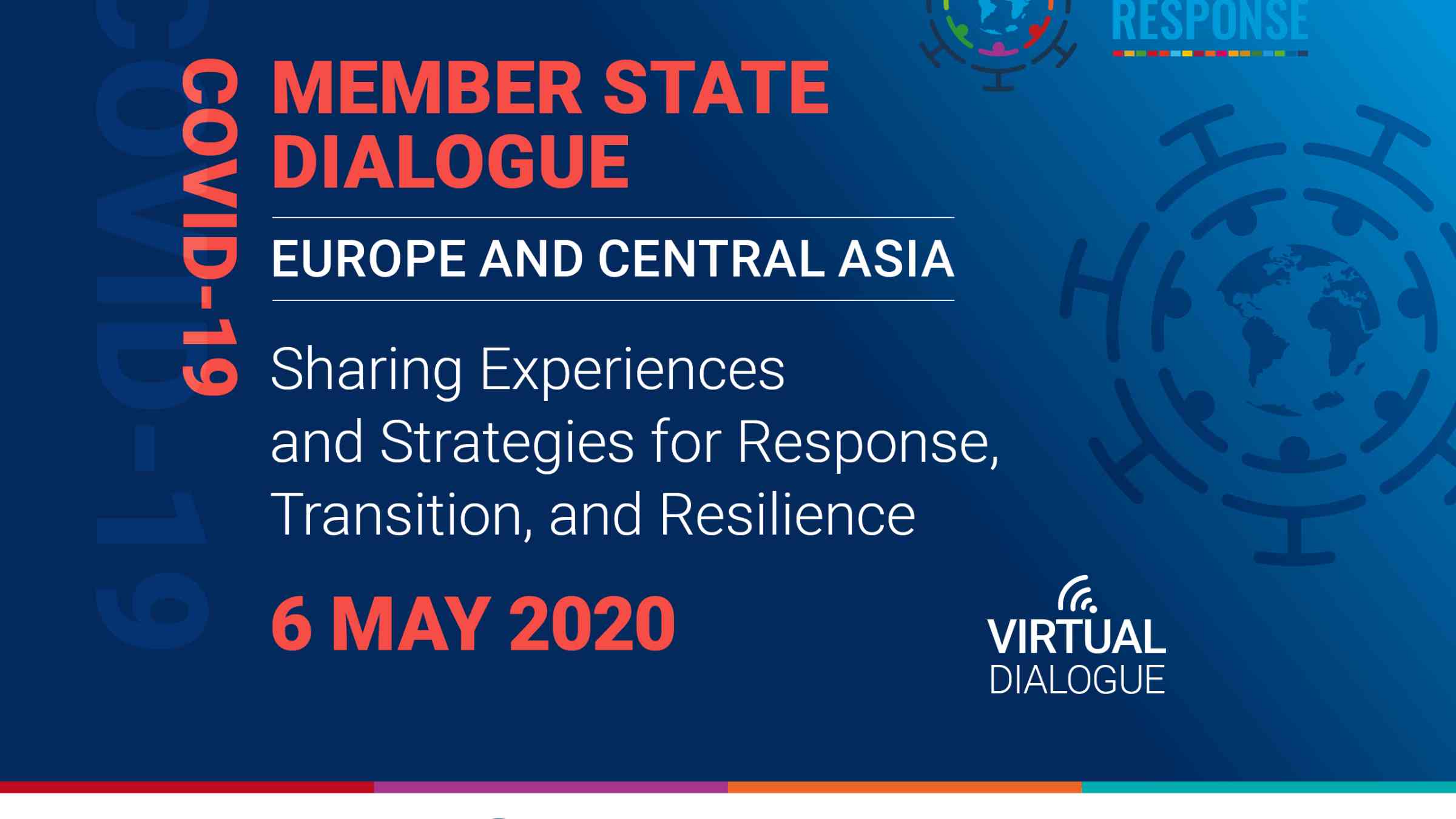Europe and Central Asia Member State Dialogue: Sharing Experiences and Strategies for Response, Transition, and Resilience

World Health Organization - Regional Office for Europe
Government of Israel
Participants
National Sendai Framework Focal Point Ministry’s covering from Europe and Central Asian region, IHR Focal Points from Ministry of Health Europe and Central Asian region.
Timing and objective
The world is facing an unprecedented challenge with the COVID19 pandemic, affecting every country regardless of its development status or national border. An international coordinated answer is therefore critical for managing this crisis and limiting Its deep societal impacts on populations, systems and economies. Countries which have yet to face the pandemic’s peak could learn from those that have already experienced it; those countries who have so far been spared the greatest impacts, could learn from the countries at the heart of the crisis. The risk of pandemic will not disappear with the end of the current crisis, moreover, in the probable case of a second wave, it is critical to learn the lessons of preventive actions, what worked, what could be improved, and what needs to be done better. We strongly encourage countries to discuss ways of working together and share their lessons learnt and good practices as the regional scale is especially relevant in this perspective.
As UNDRR has been highlighting for years, risk is increasingly systemic and complex, and can easily trigger chain reactions or cascading impacts that lead to broader damages. The situation in Croatia, where a 5.4 earthquake hit the capital city in the middle of the confinement measures imposed by the sanitary crisis, is a clear reminder of the complexity of risk and its impacts. The only way forward is a joined-up systemic prevention, preparedness and response approach at all levels. Countries need to work together on how to better prepare for the cascading impacts of the pandemic and reduce existing and future risks.
UN Member States adopted the Sendai Framework for Disaster Risk Reduction in 2015, which applies a multi-hazards approach in building resilience to a broad spectrum of disasters, including pandemics.
All countries present at this dialogue are signatories to the WHO International Health Regulations (IHR) (2005) which are focused on preparedness, response, resilience and building back better. Your countries are engaged in strengthening your IHR Core Capacities to detect, assess, notify and report events, and to respond to public health risks and emergencies. The continued strengthening of these capacities is key to slowing down transmission of COVID-19, with the ultimate goal of reaching and/or maintaining a no transmission status.
Countries in the region are today at different stages of the epidemiological curve and response. While countries in the Western part of the European region are reporting a decreasing number of cases and death, there is a number of countries which are only approaching the stabilization/plateau phase, and another group being in the early stages of the pandemic response. Decisions to tighten or loosen or re-institute Public Health and Social Measures should be based on scientific evidence and real-world experience and take into account other critical factors, such as economic factors, security-related factors, human rights, food security, and public sentiment and adherence to measures. To support countries in this decision making process WHO have released interim guidance for countries “Considerations in adjusting public health and social measures in the context of COVID-19”. As countries start seeing a declining pattern and consider relaxing non-pharmaceutical interventions (social/physical distancing, including local and national lock-downs) there is scope to learn about the effectiveness of these measures and have an ongoing exchange on effective and efficient strategies for relaxing these measures and also considerations as to when they should re impose them. Such discussion would help countries better prepare and respond to second waves.
This dialogue aims to explore how Member States have been dealing with COVID-19 crisis by sharing experiences, challenges and lessons learned with peers. Taking place on 6th May, this dialogue would remain timely, allowing countries to apply best practices learnt from the ongoing COVID19 response, and to start preparing for its cascading effects including any potential second wave.
Key areas to be discussed
- What are the major prevention and risk reduction measures that worked (including regional, trans-boundary and local level cooperation), which can be taken into consideration in preparation for another wave.
- How Member States can better communicate and join efforts for ensuring a coordinated reduction of pandemic risk and response to it? (e.g Data sharing platform from Israel)
- What are the and long term measures that needs to be taken to reduce socio-economic impact?
- What needs to be done to better anticipate future pandemic risk and possible implications? What needs to be done to strengthen capacities of governments and communities to tackle a second wave or another similar emergency? (e.g (DRR strategy assessment, Stress Testing socio-economic sectors)
- What are the exit strategies that allow us to recover and build back better?
Modality
The dialogue would be organized on ‘ZOOM’ virtual platform allowing all member states to join.